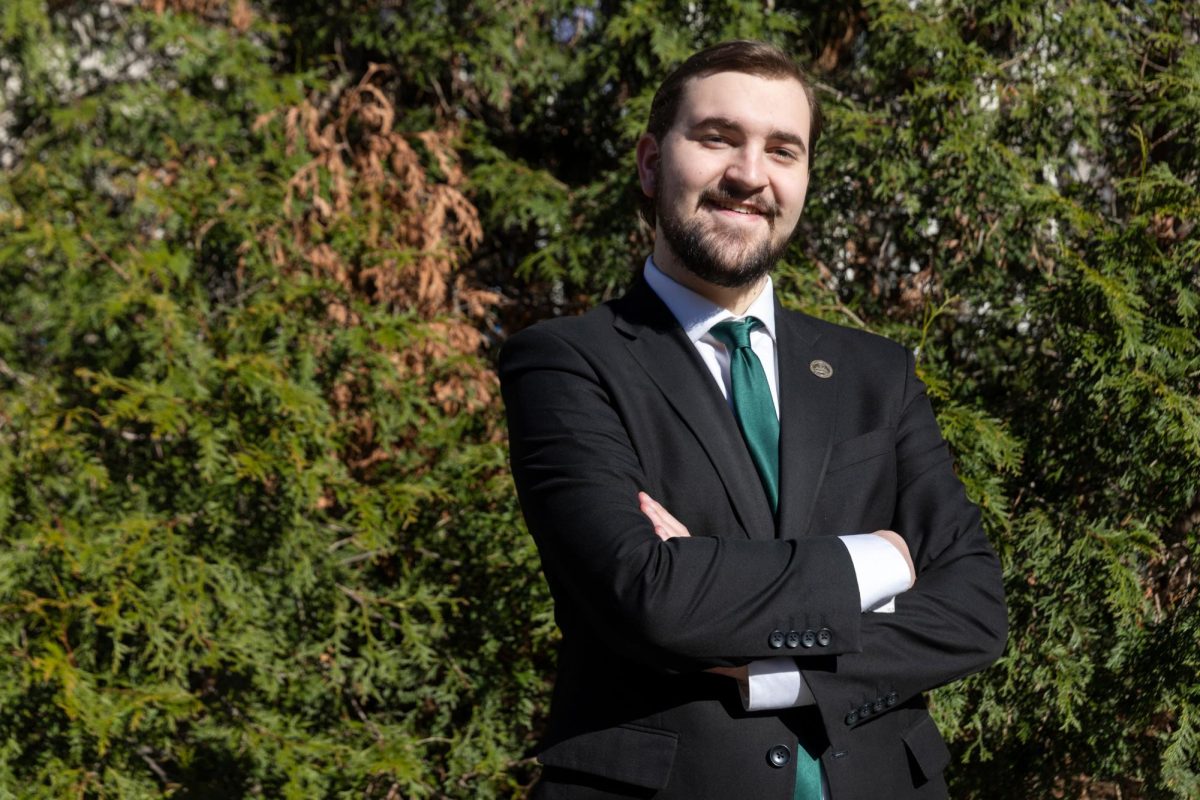The Student Association’s president and vice president received scholarships for the academic year that surpassed compensation totals provided to student leaders at several of GW’s peer universities.
The Office of Financial Assistance awarded SA President Brandon Hill and SA Vice President Kate Carpenter each $11,250 for the current academic year – the first time in GW’s history the two roles received equal amounts, University spokesperson Crystal Nosal said in an email. She said the SA vice president received $7,500, while the SA president received $15,000 during the previous five years.
“The University provides awards to recognize and honor the time, energy and passion that student leaders dedicate to specific roles in order to make meaningful contributions to the greater GW community,” Nosal said in an email. “Providing a student leader award also makes these roles accessible to a greater number of students.”
Student leader scholarships are given to students involved with certain student organizations, like WRGW and the Cherry Tree Yearbook, according to GW’s website.
SA Vice President Kate Carpenter said her scholarship funding allows her to focus on college life without having to work long hours at her on-campus job as a tour guide, where she works two to three hours a week on minimum wage.
“These programs are integral for student leaders,” Carpenter said. “And because it makes it to where any student can run regardless of socioeconomic status, and I think it really just makes it more equitable, these positions, which is something that’s so important because truly, like I said, these positions do take a lot of time.”
SA President Brandon Hill said while the scholarship he receives is “designed” to help student leaders bypass financial barriers, like needing a second job, the program can be “wildly ineffective” and “misunderstood” in the eyes of students who assume otherwise. He said the money does not help him financially because the school cut his financial aid, so he ended up receiving the same amount of money as the previous year, when he served as the SA’s vice president before becoming interim president last January.
“Then when I became EVP and president, I still received that exact same amount in financial aid but only because the University lowered my amount of financial aid and replaced the amount they lowered it by with the Student Leadership Award,” Hill said.
Three of GW’s 12 peer schools, which are comparable to GW in terms of endowment, tuition costs and programs, offer smaller amounts of financial compensation to student leaders than GW.
New York and Syracuse universities each award their student government presidents $5,000 per academic year, about 44 percent of what GW’s top SA leaders receive. Northeastern University typically allocates $1,000 to $2,000 to the president and other student government leaders per year depending on financial need.
Anthony Cruz, the president’s council vice chair of New York University’s student government assembly, said in an email that the three Student Government Assembly vice chairs each receive $1,000 each semester. He said six other SGA leaders receive semesterly stipends of $500, including a chief of staff and directors of finance, diversity, elections, communications and operations.
David Bruen, the student body president of Syracuse’s Student Association, said that the president, vice president and comptroller of the university’s student association each receive stipends of $5,000 for the full academic year.
“We are expected to conduct a regular review of our stipend with the goal of expanding it by the end of the session,” Bruen said in an email. “My administration is also looking to restructure the annual operating budget to include more stipends for other leaders by the end of the year.”
Casey Buttke, the student body president of Northeastern’s Student Government Association, said the association funds $1,000 to $2,000 in stipends for the number of leadership members who need financial aid.
In the District, Catholic University’s Student Association president and vice president do not receive any compensation from their school for their roles, their Student Association president said.
Media relations and student government organizations at GW’s other peer schools – Georgetown, Boston, Tufts, Tulane and Wake Forest universities and the universities of Miami, Pittsburgh, Rochester and Southern California – did not respond to multiple requests for comment.








